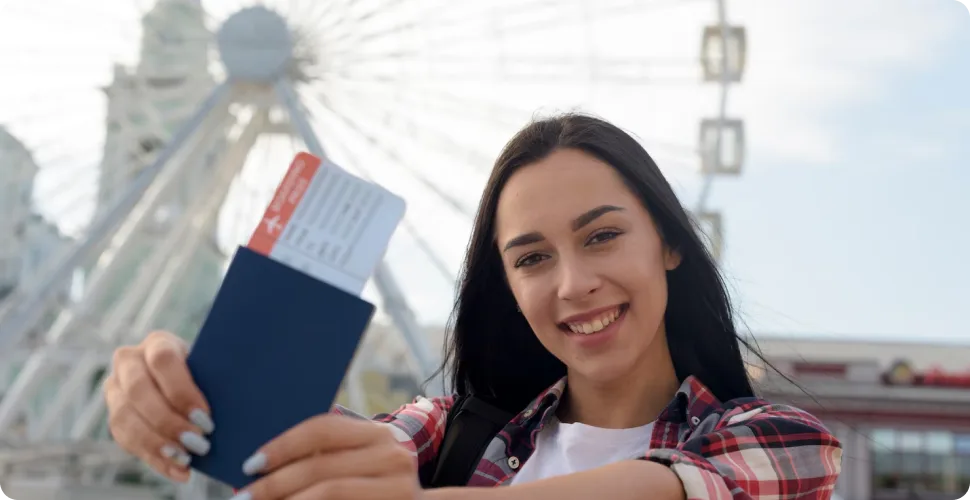Applying for a student visa can feel overwhelming. There’s paperwork, deadlines, financial proof, and interviews—it’s a lot to handle. But here’s the good news: with the right approach, the process doesn’t have to be stressful. If you plan carefully, understand the requirements, and follow a step-by-step method, you can apply for a student visa without stress and improve your chances of approval.
This blog will walk you through everything you need to know—from preparation to application submission—so you can stay calm and confident throughout the process.
Why Applying for a Student Visa Feels Stressful
Many students struggle because they don’t know where to start. Common challenges include:
- Confusion about which documents are needed
- Fear of missing application deadlines
- Worry about financial requirements
- Anxiety about visa interviews
These challenges are real, but they can be solved with the right information. The key is preparation. Once you know the exact steps, you’ll see that applying for a student visa without stress is completely possible.
1. Understand Your Student Visa Requirements
The first step is to carefully review the requirements of the country where you plan to study. Each country has slightly different rules. For example:
- Australia requires a Confirmation of Enrolment (CoE).
- USA needs the I-20 form from your university.
- Canada asks for a study permit application.
Check the official government website to get the most accurate list of documents. Understanding requirements in advance helps you apply for a student visa without stress, as you’ll avoid last-minute surprises.
2. Gather All Necessary Documents
Documents are the backbone of your application. Here’s a general list you’ll need:
- Valid passport
- Acceptance letter from your university or college
- Proof of financial ability (bank statements, sponsor letter, or scholarship letter)
- Academic records and transcripts
- English language proficiency test results (IELTS, TOEFL, etc.)
- Passport-sized photographs
- Completed application forms
Pro tip: Create a checklist of documents. Tick them off one by one so nothing gets missed. This small step reduces stress and keeps you organized.
3. Apply Early to Avoid Stress
Timing is everything. Many students wait too long, which leads to panic. Ideally, you should start your student visa application process at least 3–6 months before your course starts.
Applying early ensures:
- You have enough time for document corrections
- You don’t feel pressured by deadlines
- You can calmly prepare for interviews, if required
Early preparation is the easiest way to apply for a student visa without stress.
4. Be Clear About Financial Proof
One of the biggest reasons for rejection is weak financial documentation. Every country wants to see that you can support yourself while studying.
Here’s what you can use as financial proof:
- Recent bank statements showing sufficient funds
- Scholarship letters
- Loan approval letters
- Sponsor’s income documents
If you prepare your financial proof early, you won’t have to scramble at the last minute. This ensures a stress-free student visa application.
5. Fill Out the Application Carefully
Many students make small mistakes while filling out forms—wrong spellings, incorrect dates, or missing details. These errors can delay or even reject your visa.
To avoid stress:
- Double-check all details before submission
- Keep copies of everything you submit
- If you’re unsure, consult a visa expert or your university’s international office
A neat, error-free application increases your chances of success.
6. Prepare for the Visa Interview
Not all countries require interviews, but if yours does, don’t panic. A student visa interview is usually straightforward. Officers mainly want to confirm that you’re a genuine student.
Tips for stress-free interviews:
- Be honest with your answers
- Explain your study plans clearly
- Show confidence but stay humble
- Carry all supporting documents
If you’ve prepared well, there’s no need to stress.
7. Track Your Application
After submission, don’t just wait blindly. Most visa applications allow you to track the status online. Tracking helps reduce anxiety because you’ll know exactly where your application stands.
8. Stay Positive and Patient
Visa processing times vary—sometimes it’s a few weeks, other times it takes months. Instead of stressing, focus on preparing for your studies. Remember, you’ve done your part by submitting a complete and accurate application.
Tips to Apply for a Student Visa Without Stress
- Keep digital and physical copies of all documents.
- Stay updated by checking official government websites.
- Join student forums to learn from others’ experiences.
- If overwhelmed, seek help from a licensed education consultant.
FAQs on Applying for a Student Visa Without Stress
Q1. How early should I apply for a student visa?
You should apply at least 3–6 months before your course starts to avoid stress.
Q2. What if my student visa application gets rejected?
Don’t panic. Identify the reason for rejection, correct the issue, and reapply.
Q3. Do I need to show proof of funds for every country?
Yes, almost every country requires proof of financial ability to support your studies.
Q4. Can I apply for a student visa without IELTS?
Some countries allow alternatives, but most prefer English proficiency proof. Check your chosen country’s specific requirements.
Q5. Is hiring a visa consultant necessary?
Not always. If you feel confident, you can apply yourself. But a consultant can make the process easier if you’re unsure.
Final Thoughts
Applying for a student visa doesn’t have to be a stressful journey. By preparing early, organizing documents, and staying calm, you can handle the process smoothly. Remember, the secret to applying for a student visa without stress is planning ahead and staying informed. Once your visa is approved, you can focus fully on the exciting part—starting your new academic journey abroad.




